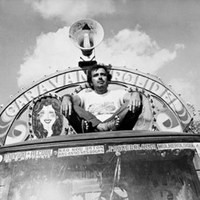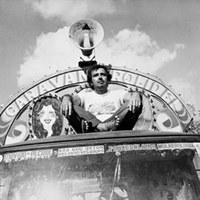Maceió (Brasil), 1940
By Luiz Felipe Alves de Miranda
A prominent figure of Cinema Novo, he debuted with a historical film about the condition of Black people, Ganga Zumba, King of Palmares (1964), based on the book Ganga Zumba by João Felício dos Santos. He then filmed the urban drama The Great City (1966). Strongly influenced by Glauber Rocha’s film Entranced Earth (1967), he directed The Heirs (1969), where he worked with political allegories. He revisited the carnival film genre with When Carnival Comes (1972). He focused on the decline of sugar mills in the 1930s in Joana Francesa (1973). He made a historical film about the Black issue (Xica da Silva, 1976), also based on the homonymous work by João Felício dos Santos. He released Summer Rains (1978), a poetic look at the suburbs of Rio de Janeiro. He portrayed the changing country in Bye Bye Brazil (1979). He made a historical blockbuster about Black people in Quilombo (1984). Youth appeared in A Train to the Stars (1987). People in crisis in a country also in crisis are the focus of Better Days Will Come (1988). The episodic See This Song (1994) was adapted from songs by four popular composers. He staged Jorge Amado’s novel in Tieta of Agreste (1996). Based on the play Orfeu da Conceição by Vinicius de Moraes, Orfeu (1999) focused on Black people living in Rio’s favelas; and based on a story by João Ubaldo Ribeiro, he made the comedy God is Brazilian (2003).
Other works: The Greatest Love in the World (2006), the documentaries No Reason Explains the War (2006) and Rio of Faith (2013). In 2015, he was finishing the feature film The Great Mystic Circus.




